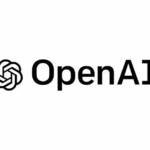Perplexity AI, a startup focused on artificial intelligence search technology, is currently in discussions to raise approximately $500 million in funding. This new round of investment could elevate the company’s valuation to around $9 billion, a significant increase from its previous valuation of $3 billion earlier this year. The Wall Street Journal first reported on these funding talks, which are still in the early stages and may change as negotiations progress.
Founded to challenge the dominance of Google in the search engine market, Perplexity AI has seen its valuation rise dramatically over the past year. At the beginning of 2023, the company was valued at just $500 million. By April, this figure had jumped to $1 billion, and now it is poised to reach $9 billion if the funding round is successful. This surge reflects a broader trend of intense interest from venture capitalists in artificial intelligence companies, particularly those involved in generative AI technologies.
Perplexity AI has attracted notable investors, including Jeff Bezos, founder of Amazon, and the SoftBank Group’s Vision Fund 2. The company has also received backing from Nvidia, a leader in graphics processing technology. These investments highlight the growing confidence in AI startups, especially as they continue to innovate and expand their offerings.
The startup’s search tool provides users with instant answers to queries, complete with sources and citations. It utilizes various large language models (LLMs), including those developed by OpenAI and Meta, to generate and summarize information. In addition to its free and paid search services, Perplexity has recently introduced features that allow organizations to search their internal files alongside internet content. This expansion aims to enhance the utility of its search engine for businesses and individuals alike.
Despite its rapid growth and innovative offerings, Perplexity AI has faced significant challenges. The company has been embroiled in controversy over accusations of plagiarism from several media outlets, including the New York Times, Forbes, and Wired. These organizations claim that Perplexity scrapes their content to generate responses, which raises ethical concerns about the use of proprietary information. In response to these allegations, Perplexity has launched a revenue-sharing program with major publishers, aiming to address some of the concerns raised by the media.
In October, the New York Times issued a “cease and desist” notice to Perplexity, demanding that it stop using the newspaper’s content for generative AI purposes. This legal action is another example of the ongoing tensions between AI companies and traditional media outlets, as the former seek to leverage existing content to enhance their services.
Perplexity’s annualized revenue is estimated to be around $50 million based on recent sales figures. This revenue generation is crucial for the company’s sustainability and growth, especially as it navigates the competitive landscape of AI technology. The startup’s ability to secure funding will likely play a significant role in its future success, as it seeks to expand its capabilities and market presence.
The current funding discussions have arisen not from Perplexity actively seeking new investments, but rather from investors approaching the company with interest. This shift in dynamics reflects the growing recognition of Perplexity’s potential within the AI sector, as well as the increasing demand for innovative search solutions.
As the AI market continues to grow and evolve, Perplexity AI finds itself at a crossroads. The company must balance its ambitious growth plans with the need to address the ethical implications of its technology. The outcome of the current funding talks will be pivotal in determining Perplexity’s future and how it will position itself in a rapidly changing industry.






